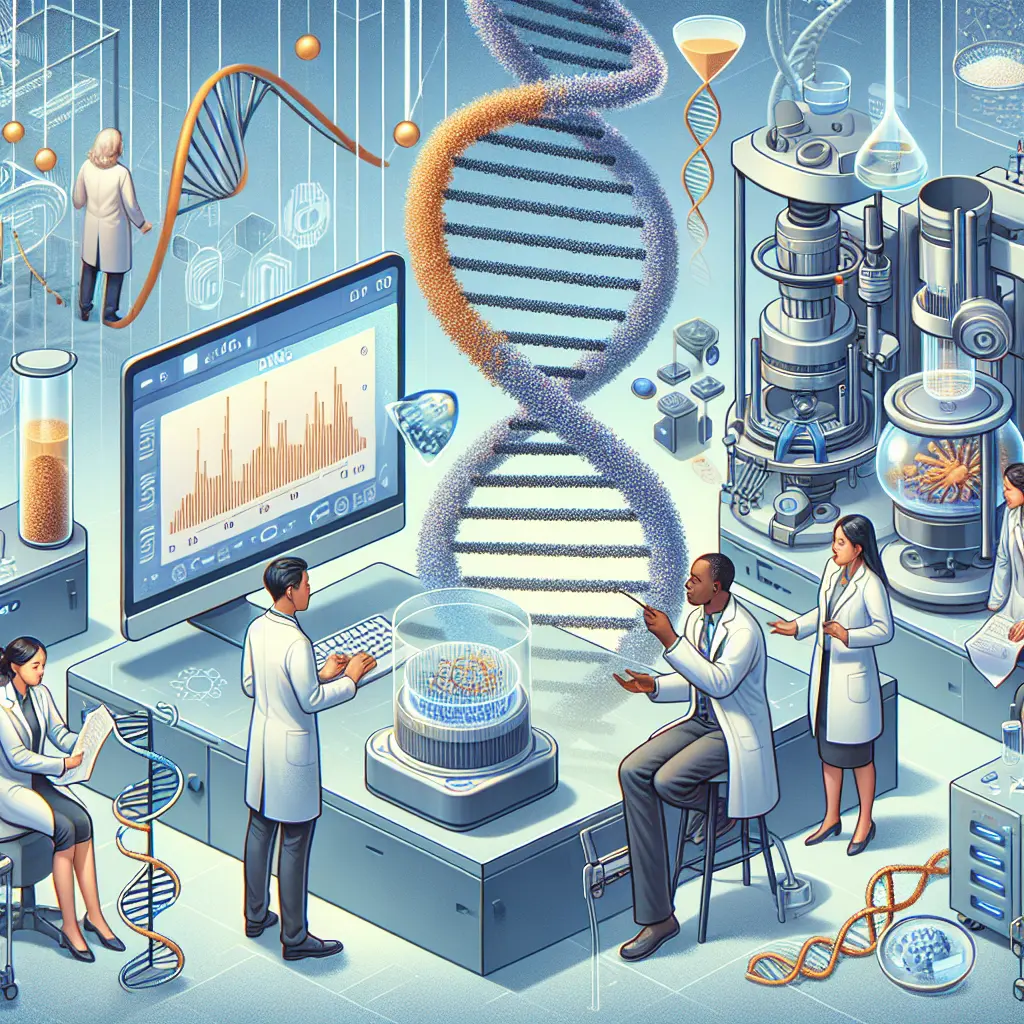
In the realm of biotechnology, one of the most exhilarating prospects is the extension of human lifespan through advanced genetic interventions. Recent breakthroughs in gene editing, particularly through CRISPR technology, are not just rewriting the code of life but are also setting the stage for potentially revolutionary advances in human longevity. This post delves deep into the intersection of gene editing and human lifespan extension, exploring how cutting-edge science could pave the way to significantly longer, healthier lives.
The Dawn of Gene Editing Therapies
The potential of gene editing was vividly highlighted with the first therapy that might cure a blood disorder, marking a significant milestone in medical biotechnology. This development provides not only a beacon of hope for those suffering from genetic blood disorders but also showcases the broader applications of gene editing technologies like CRISPR in treating complex diseases ([source needed]).
In the UK, CRISPR technology has recently been employed to offer innovative treatment options for patients with blood disorders. This approach involves precisely altering specific genes within the DNA of a patient's cells, demonstrating CRISPR’s potential to correct disease-causing genetic errors effectively and safely ([source needed]).
Advancements in Genetic Tools and Techniques
Researchers have also developed novel nanosensing techniques to enhance the quality control of viral vectors used in gene therapy. This advancement is crucial as it ensures the safety and efficacy of gene therapies that could be used in anti-aging treatments and other health applications ([source needed]).
From the depths of rainforests to the confines of laboratories, scientists have discovered genes that might allow the production of drought-tolerant or disease-resistant cacao trees. This finding is a testament to how genetic modification can contribute to sustainability in agriculture, which indirectly impacts human health and food sources, influencing overall longevity ([source needed]).
Gene Editing Beyond Human Cells
A recent study on mice has unlocked new possibilities for genome editing of bacteria in the gut. This research opens up fascinating avenues for manipulating these microorganisms to improve health outcomes and potentially extend human lifespan by preventing or curing age-related diseases ([source needed]).
Moreover, nanoparticles are being explored as vehicles to deliver treatments for sickle cell disease. This innovative approach could revolutionize how genetic diseases are treated, emphasizing the role of nanotechnology in longevity research ([source needed]).
Reversing Aging: More Than Just a Dream?
Perhaps one of the most groundbreaking applications of gene editing is its potential to reverse the aging process. A new technique has successfully reversed heart disease in mice through targeted genetic modifications. While still in early stages, such research fuels optimism about the possibility of reversing aging in humans, transforming how we understand and experience aging ([source needed]).
Ethical and Social Implications
As we advance in genetic engineering for longevity, it's imperative to consider the ethical implications. The ability to extend life dramatically raises complex social, ethical, and economic questions that society must address. These include issues of access to such technologies, potential overpopulation, and the disparities that might arise from unequal access to life-extending treatments ([source needed]).
The Precision Medicine Approach
Precision medicine is another critical aspect of this discussion. By tailoring healthcare strategies to individual genetic profiles, we can anticipate more effective interventions against aging-related diseases. Genetic engineering could play a pivotal role in this personalized approach, making preventative care more practical and directly impacting human lifespan extension ([source needed]).
Looking Ahead: Longevity Research and Biotechnology
The path forward in biotechnology and aging involves not only enhancing quality and length of life but also ensuring these advancements are accessible and ethical. Continued research into telomere extension, DNA editing, and other aspects of gene therapy for aging is vital. Each discovery not only brings us closer to understanding aging but also how we might effectively intervene in its process ([source needed]).
As we advance, it remains crucial to balance innovation with caution. The integration of novel biotechnologies into public health strategies must be handled responsibly to avoid potential pitfalls and ensure that the benefits of longevity research are shared equitably across society.
In conclusion, the journey toward extending human lifespan through gene editing and biotechnology is filled with both promise and challenges. As researchers continue to push the boundaries of what’s possible, society must engage in an ongoing dialogue about how best to utilize these powerful technologies. It's an exciting time in science and medicine—one that may eventually redefine the human experience of aging.
Thank you for joining me on this exploration into one of science's most thrilling frontiers. Here's to a future where every advancement brings us closer to a healthier, longer life.
Sarah Brighton